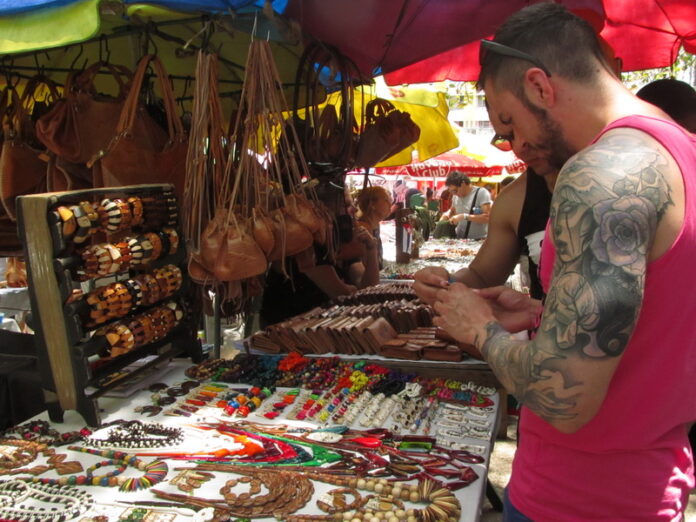
By Veronica Vega
HAVANA TIMES – Lately, I’m feeling nostalgia for so many things. Almost any time from the past seems better to me than now.
I insistently recall the times when we would sell at the fair held in the park between G and 23rd St., in the worst days of the “Special Period” [economic crisis Cuba suffered in the 90s, following the collapse of the Soviet Union]. My mother, a born sculptor who had abandoned her art studies when she got pregnant, was the one who saved us from that precipice. She got the idea to obtain a license for handicrafts and began to create marvels.
Little by little, we all got into the business, using bamboo to make jewelry boxes that we then decorated with small seashells. We made little wells and windmills with blades that actually turned. These attracted attention to our sales table, especially from children. They were patterned after some European souvenirs, but Mom used pyrography to write “CUBA” on one end, and in one fell swoop brought them into our history.
I remember the crowd at the fair, which prospered unstoppably. Walking amid the offerings of clothing, exquisite ceramic tableware, and even homemade furniture, was like a party. What a shame we didn’t have a camera to capture something of those days!
I miss the atmosphere of creativity, the hustle and bustle of a heterogeneous public, and the hope that floated in the air. A hope made by hand, against all government predictions.
Several months later, the fair was evicted from the park, supposedly for repairs that never took place. We craftspeople ended up at a small improvised plaza facing the boardwalk, a place where tourist hardly passed by. At times the wind was so strong, it knocked over the pieces we were selling. There, in the least glamorous part of Vedado neighborhood, we were the object of imminent changes, a jealous scrutiny of the forced alternative of “informal labor.”
My mother collapsed after my younger brother departed to go into exile. Later, neuropathy condemned her to stay at home, immobile, full of sadness.
They say this neuritis was the biological result of insufficient nutrition. That someday, the statistics would be published. About those forced to remain petrified and immobile in front of a television, a window (or any way that you could flee without having to move)? Data regarding blindness? Broken dreams? Losses in the deceitful abyss of the sea? Suicides?
What does it mean when you long for a time that had such a serious impact on all of us?
We fell, we were submerged, along with Eastern Europe, but we in Cuba could never again came up to the surface.
I could quote a phrase here, that constitutes a paradox: “when we were happy and didn’t know it…”
Because happiness should, in itself, contain the fullness of awareness. If unconsciousness is called happiness, it’s really just semantic or political opportunism.
I believe that the Cubans who went out onto the streets on July 11, 2021, were happy – while the illusion of liberation lasted.
But happiness can’t be limited to a catharsis. Even if it’s not permanent, it should represent a state that lasts long enough to relax us, so we can experience the full pleasure of being alive.
The right to prosper with no menaces hovering over our heads. Happiness derives from clean good work, pure effort, without false or dark alliances, with the simplicity of that which is healthy, and that which is logical.
Happiness can’t be construed relatively, via comparison with worsening conditions. What came after those times was never the future they promised us – not in the 90s, much less now.
That future which arrived without our realizing it. And that happiness became an uncomfortable question if you remained in Cuba, or the object of a loaded comparison with those who left. Happiness was folded up and stuffed in the bottom of a backpack, while illegally crossing borders, or scouring the markets of misery.
Read more from the diary of Veronica Vega here.




